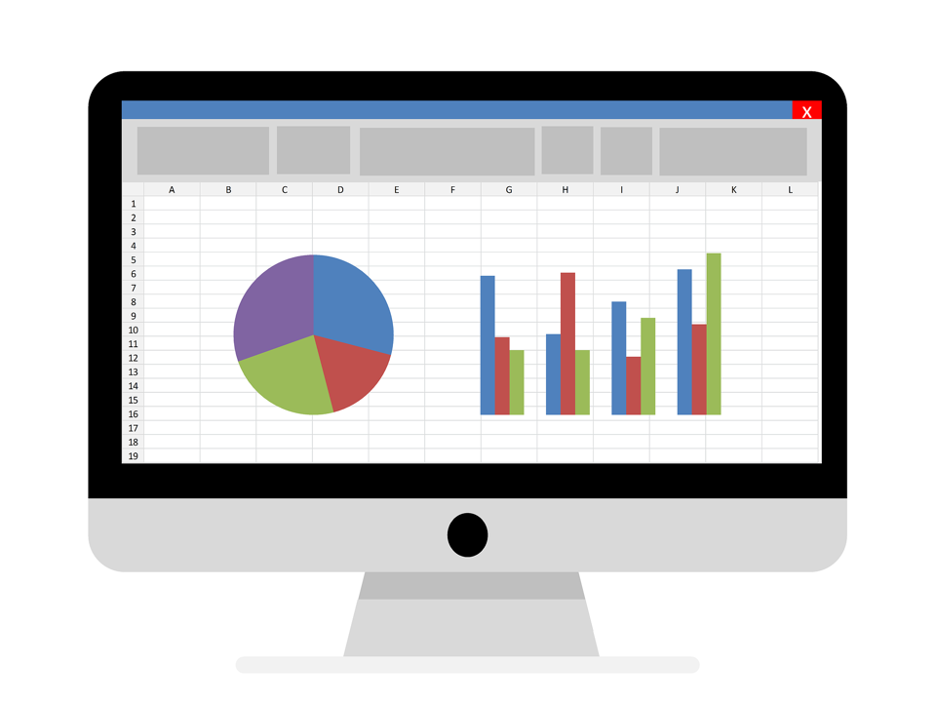You finally have all the pieces of your entrepreneurial puzzle in place—a great proposition, an excellent location, a solid plan, and the financial muscle to put it all into motion. Barring the ordinary vagaries of business and unexpected crises like the COVID-19 pandemic, you should start seeing your rewards and expanding in no time.
However, there is one vital piece your venture will begin to wobble and eventually crumble without: an accountant. Without a qualified professional manning their books, many small businesses have seen an untimely end. If you yourself don’t have accounting expertise, consider hiring a full-time accountant, e-commerce accountants or outsourcing the following services.
1. Payroll
There’s much more to managing a payroll than doling out cash to your employees every two weeks. The government requires you to make deductions such as income tax, social security contributions, and health insurance premiums on your employees’ behalf. Failure to make these remittances in time can lead to fines running into tens of thousands of dollars, or you could even face jail time.
You may be aware of these deductions and even know how to calculate them yourself, but if it’s not your specialty, you might not be up to date with the latest regulations governing those deductions. And between you and a career accountant, there is a higher chance that errors will arise when you try to do their bread and butter.
A professional accountant can help you do the computations for these deductions accurately and apply the most up-to-date standards and procedures. Certified public accountants (CPAs) have years of training on these processes and regularly attend seminars that keep them updated on any statutory deductions changes.
2. Bookkeeping
Bookkeeping can help you keep track of your daily financial operations- purchases, sales, etc. Without these records, it’ll be near impossible to work out your business’s financial health at the end of the month or year. You’ll also have trouble filing your returns and working out what you owe the IRS. The IRS aside, you need that data to help you make the right decisions for your business’s growth.
Keeping track of every transaction is quite involved. Trying to do this while overseeing your workforce, listening to customer grievances, trying to drive sales, etc. will stretch you thin. With such a hectic schedule, it’s easy to imagine accidentally making avoidable bookkeeping errors. If you don’t have any experiences on many accounting services, you may visit our site to know more about company accounting services in Hongkong.
3. Financial Reporting
Feeding the credits recorded during bookkeeping into financial instruments that show a business’s performance over a given period is best done by an experienced accountant. They can correctly apply GAAP, or generally accepted accounting principles, to determine your business’s assets, liabilities, and profit or loss. Hiring an accountant for a startup business is essential to staying on track with your goals for growth.
Having your balance sheet in order will also better prepare you to meet your obligations to the IRS. Your accountant should know how to extract information from your financial statements for use for tax reporting.
Being able to draw accurate financial statements of the required standards is a demanding task best left to an expert CPA. Freeing yourself of this responsibility will allow you to focus on your core business responsibilities and coming up with ways to improve your margins.
4. Accounts Receivable/Payable
Working out a company’s accounts receivable and payable is the core of an accountant’s work. Accounts receivable is money owed to the business by its customers, while accounts payable is what you owe your suppliers and institutions that may have lent you money. Your accountant will know where to place all these items on your balance sheet so that you get an idea of how well your business is fairing. As your appointed CPA helps you decipher your balance sheet, you can sniff out debts and potentially save yourself from unnecessary losses.
5. Financial Advising
Financial accounting is only part of what your accountant will help you do. They will also assist you with managerial accounting, which uses the data in your financial statements to improve your business’s profitability.
For instance, you can drill down to the cost of advertising for each of the lines of products you offer. Comparing this with the revenues generated by each line, you can determine which of your campaigns was most effective. In turn, you can decide to spend more on a particular form of advertising for a product line bringing in good returns. You could also spend more on an alternative form of advertising for an underperforming product or service offering.
Accounting for the Future
As you think about an accountant to bring on board, it’s wise to think about where you are and where you want to be in the future. As a small business, you’re better off working with a small but reputable accounting firm that can offer you personalized service. However, be sure to choose an accounting partner that can effectively scale up when your operations begin expanding.



 Bitcoin
Bitcoin  Ethereum
Ethereum  Tether
Tether  XRP
XRP  Solana
Solana  USDC
USDC  TRON
TRON  Cardano
Cardano  Lido Staked Ether
Lido Staked Ether  Avalanche
Avalanche  Toncoin
Toncoin